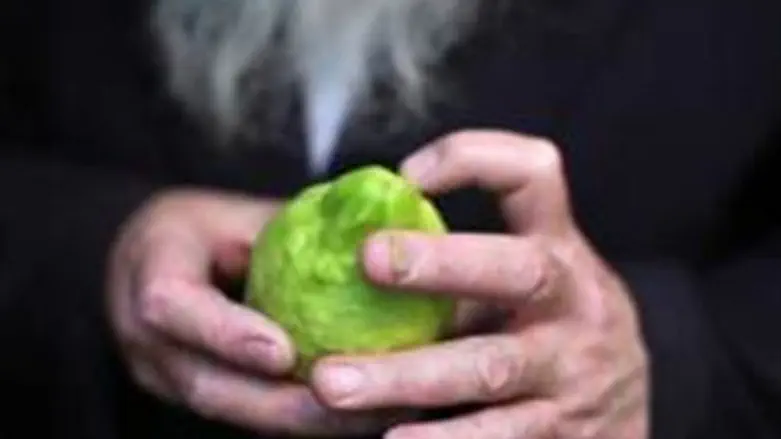
If you're visiting Israel for Sukkot, the Agriculture Ministry has a message for you: Leave the Lulav behind. Customs officials will seize and dispose of all lulavim (palm fronds), hadassim (myrtles), and aravot (willow branches). Those who wish may bring an etrog (citron) into the country – but only one per traveler - and must declare it before entering. Failing to follow the rules could result in a large fine, Ministry officials said.
Like most countries, Israel regulates the import of agricultural products, and as fresh agricultural products, the Four Species are subject to regulations ensuring that no problematic agricultural diseases or destructive pests enter the country. In recent years, authorities have increased their vigilance around Sukkot time, because of an explosion in the number of agricultural diseases that could damage Israeli crops.
Because of the large number of tourists entering the country during the holiday season, and the difficulty of inspecting lulavim, hadasim and aravot, the Ministry has this year decided to ban their import altogether. Etrogim, which are easier to inspect for disease, will be checked by Ministry experts. Tourists carrying an Etrog will be required to declare it at customs, and if it checks out – meaning that it does not have any lesions or other blemishes indicating disease - the etrog will be given a “visa.” If not, the traveler will be directed to one of Israel's many “arba minim” (four species) markets, where they can purchase their Sukkot supplies.
The rules, by the way, apply to other items associated with the High Holiday season, including apples, honey, pomegranates, dates, etc. Pomegranates (rimonim) are an especially favorite item for smugglers, the Ministry said, and alert customs agents have in the past seized several suitcases full of pomegranates. Inspectors will be especially paying attention to travelers arriving from Italy, France and Morocco, where large numbers of etrogim are often smuggled from.